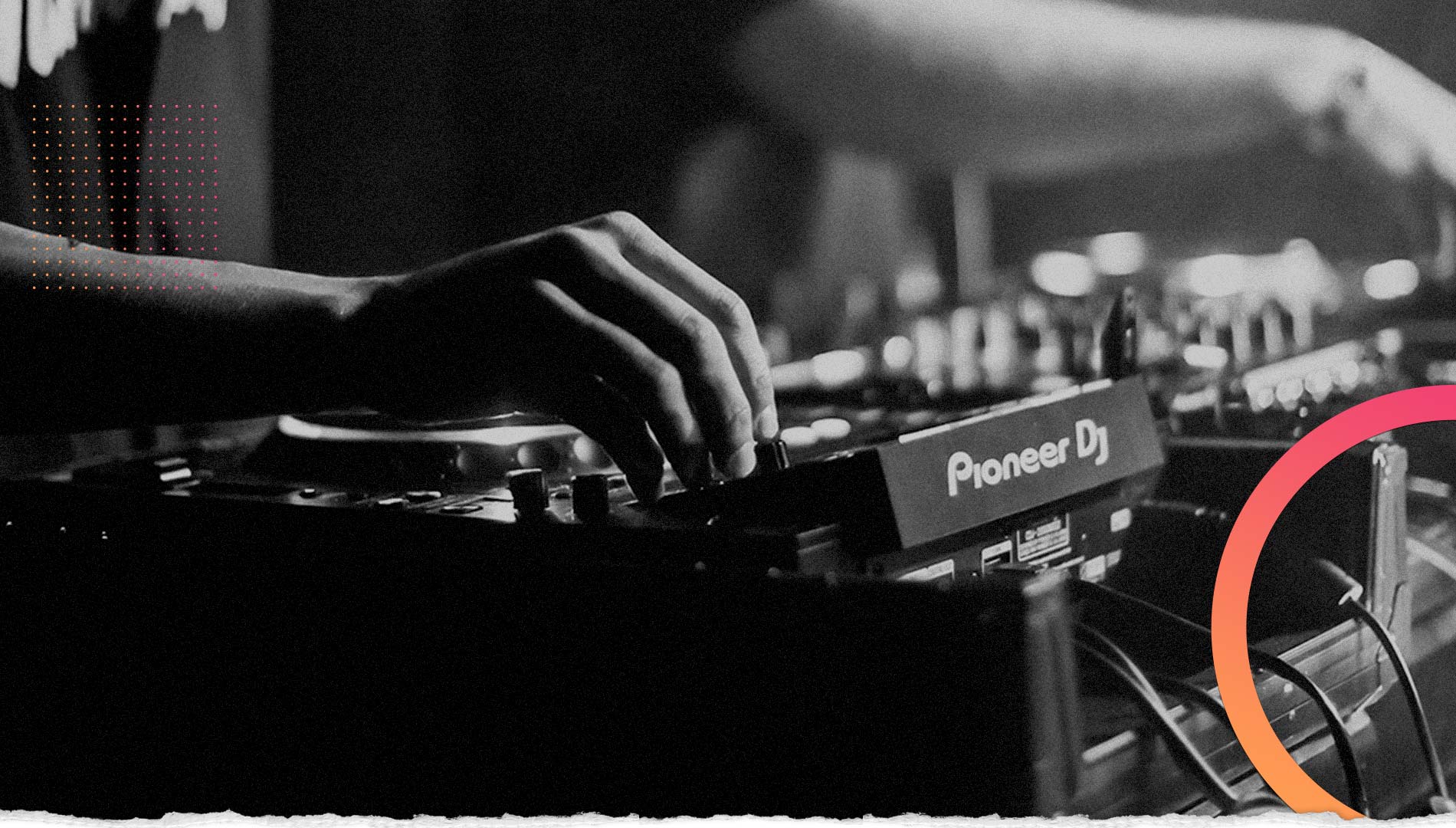Berlin’s senate for culture has reversed its decision to introduce a clause to cultural funding that required applicants to accept the controversial IHRA definition of antisemitism, which proscribes criticism of Israel.
The surprise announcement came after a week of mounting tension inside Berlin’s culture and nightlife sectors, as a wave of international musicians cancelled their upcoming shows in response to the crackdown on support for Palestine.
A press release from the senate stated that the anti-discrimination clause, which was introduced on 5 January, may not be “legally secure”. Funding from the Berlin senate supports the majority of the city’s arts venues and cultural institutions, including nightclubs.
Joe Chialo, the senator for culture and social cohesion, acknowledged the “legal and critical voices” that had called for the clause to be removed.
The CDU politician stated: “There is no question about it: I will continue to work for the non-discriminatory development of Berlin culture. But I have to take seriously the legal and critical voices that saw the introduced clause as a restriction on artistic freedom. We need the debates now more than ever and there is no doubt in my mind that it is time to act. I encourage discourse and build on non-partisan cooperation.”
Around 6,000 Berlin-based artists and culture workers had signed a petition calling for the Berlin senate to withdraw the new “anti-discrimination clause”, including REM frontman Michael Stipe, photographer Wolfgang Tillmans and this year’s Turner Prize winner Jesse Darling.
On 12 January, multiple artists withdrew from an annual experimental music festival citing the demands of artist boycott Strike Germany, while a collective of Black American musicians separately cancelled their event at Berghain, the nightclub at the heart of Berlin’s renowned techno scene. Days earlier, Berghain was accused of cancelling an event for political reasons by Arabian Panther, a French-Lebanese DJ who is known for wearing a keffiyeh during performances.
CTM Festival, which received a four-year funding commitment from the Berlin senate for culture last year, had offered a tacit endorsement of the artist boycott last week in a statement expressing concerns over the senate’s plans “to massively intervene in the freedom of the arts”. Among those to pull out of the festival were Ugandan electronic artist Kampire, Egyptian DJ Yas Meen Selectress, and UK-based DJs Jyoty, Manuka Honey, Scratchclart and Raji Rags.
Raj Chaudhuri, who performs as Raji Rags, said the U-turn was “proof that collective action in this way can work.” He told Novara Media: “Although this is a very tiny win in terms of the much bigger global issue of an ongoing genocide, it at least shows that public opinion can actually have an impact on [governments] when they so often seem happy to ignore the will of the vast majority of the public.”
Michail Stangl, co-curator of CTM Festival, also celebrated the U-turn on “the highly contested and completely counterproductive anti-discrimination clause,” writing on Twitter/X.
Ravers 4 Palestine, a “horizontal anonymous collective of DJs and ravers” based in the UK, said it had been working with its network to coordinate the CTM withdrawals, which it believes were a critical factor in the U-turn. “By withdrawing their labour, [international DJs] struck a blow to the cultural legitimacy of Berlin as a centre of electronic music and by doing so pose an economic threat to the German government,” a spokesperson for the collective told Novara Media.
Cracks have been showing across Germany’s culture sector since the 7 October attacks, with repressive policymaking and violent policing – including mass arrests at marches – pushing long-simmering political divisions within the arts scene to breaking point. Last year, several public figures were disinvited from speaking events and meetings over their support for Palestine, including Jeremy Corbyn, Bernie Sanders, the Palestinian writer Adania Shibli and the musician Nicolás Jaar.
The Strike Germany campaign, launched earlier this month amid threats of revoked funding, has gathered around 6,000 signees, including Nobel prize-winning author Annie Ernaux and the Palestinian poet Mohammed El-Kurd. Led by an anonymous group of artists, the campaign’s demands on cultural institutions include a rejection of the IHRA’s definition of antisemitism.
Strike Germany hailed the U-turn as a “temporary victory” but pointed out that the reversal only applies to Berlin, while the adoption of the IHRA definition remains in place throughout Germany.
“It’s a moment for celebration, but at the same time we don’t want DJs to get the impression that the strike is over or that we’ve won,” added the spokesperson for Ravers 4 Palestine. “It’s not clear the Berlin senate has abandoned its efforts to embed the IHRA definition – in fact, it might be seen more as a delay than as the dropping of that clause. We need to escalate and build the campaign.”
Separately, after hosting a line-up of all Black musicians at Berghain last year, New York’s dweller collective announced on 10 January that it would not be returning to Berlin. “We made this decision a while ago due to the way German institutions were treating those opposing the current genocide in Palestine,” the collective wrote on Twitter/X, linking to a post by boycott campaign Strike Germany. “[I]t’s now reached an absurd level of control,” they added.
The same weekend, Arabian Panther accused Berghain of lying about the reasons for his event cancellation, with the club allegedly blaming it on renovation work in order “to avoid the bad buzz of cancelling alone a pro-Palestinian Arab artist,” he wrote. The club – which rarely makes public statements – has not commented on the situation.
Germany’s club scene has also been at loggerheads over the fate of HÖR, a streaming platform that has hosted hundreds of DJ sets inside its bathroom-like stage set since the pandemic. In November, two DJs were asked to remove items of clothing that HÖR deemed too controversial to broadcast, including a T-shirt with “Palestine” written in Arabic over a map of Israel. In response, dozens of artists requested that their DJ sets be taken off the platform.
One Berlin-based British artist, who didn’t want to be named, suggested that the HÖR backlash was “an articulation of how distressed people are feeling”. Novara Media spoke to several international artists and music workers based in Berlin who declined to comment due to the atmosphere of repression in the city, with some citing potential risks to their migration status.
Outside of the capital, the Munich nightclub Blitz cancelled an event last October over pro-Palestine social media posts by scheduled artist LCY. The London-based DJ and producer wrote a statement in response calling on artists to be “a unified voice against the genocide”. They added: “I’m not the only artist that has been pulled from gigs and there are people being fired all over the country for sharing their opinions”.
Palestine has long been a sore point inside Germany’s clubbing scene, with native Germans often at odds with international residents despite their otherwise comparable progressive politics. In 2018, the nightclub ://about blank cancelled a long-running party for its affiliation with #DJsForPalestine – a widely publicised boycott of Israel inspired by the wider boycott, divestment and sanctions movement – which was signed by touring DJs including Ben UFO and The Blessed Madonna. Tensions resurfaced in 2021 when the same club hosted the launch of a book titled Judenhass Underground (“Jew-Hate Underground”) which alleged that antisemitism was behind the #DJsForPalestine boycott.
On 12 October, five days after the Hamas attack in Israel, ://about blank posted a long statement to Instagram titled, “The horror won’t go away, the nightmare won’t end” and linking the massacre to the Holocaust, calling it “the biggest mass murder of Jews since the end of Nazi extermination camps in 1945”.
Berlin is home to several major music firms, including SoundCloud, Native Instruments and Ableton, along with scores of arts venues and nightclubs that receive government funding. With Berlin’s new CDU-led government bringing its culture war agenda into office, the Senate’s “anti-discrimination clause” is unlikely to be the last attempt to bring the city’s artists and culture workers to heel. Last week also saw at least 300,000 people taking part in protests across Germany against the far-right party Alternative for Germany, or AfD, which is polling second nationally.
“Before the U-turn, the Berlin artists I was speaking to felt very gloomy about the current situation,” said Chaudhuri. “[T]his is definitely a move in the right direction, though I believe there is still more work to be done.”






